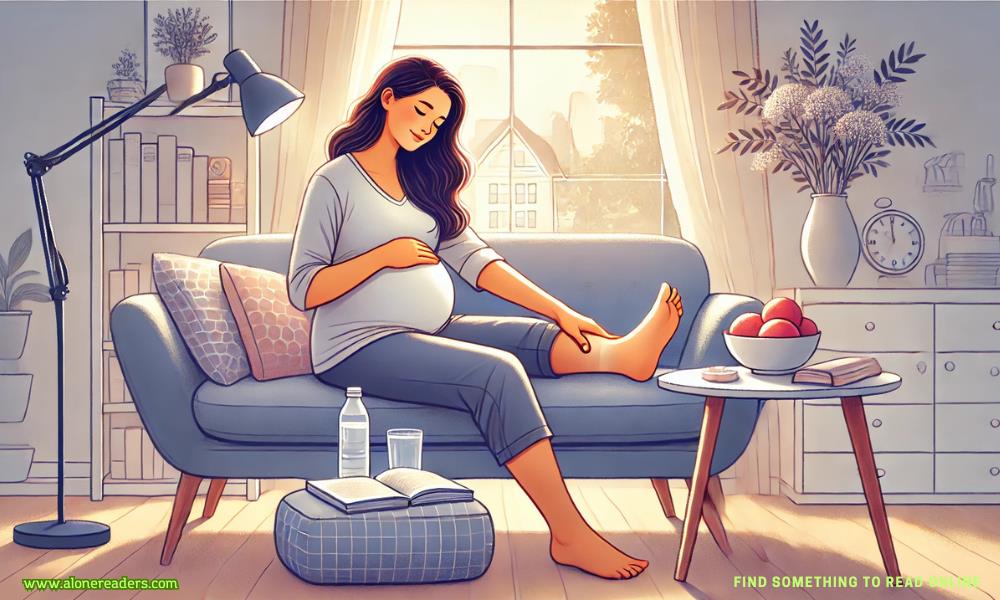Page 29 of In the Garden of Monsters
The trail wound through what Ignazio explained was known as a nymphaeum—a sanctuary dedicated to water nymphs—a small area of theboschetto, full of beautiful, curved benches and alcoves with worn images of the Three Graces and nymphs carved into the wall. According to Ignazio, a vaulted ceiling once covered the area.
As I peered at the worn carvings, a faint green luminescence flickered in the hollows of their eyes—a glow that vanished as quickly as it appeared, leaving me to question whether it had been there at all. The statues seemed to watch us with a silent intensity, their gazes following our every step. The nymphaeum held a dark undertone, a sense that we were intruders in a realm where the past was not quite asleep.
Beyond the nymphaeum, the footpath led us to the remains of an amphitheater, now covered in moss.
“Paolo, you were telling me that you like poetry,” Jack said loudly enough for all of us to hear. “What would you recite?”
“Sì, recite something.” Dalí waved the cameraman to the center of the amphitheater.
Paolo’s face reddened but he acquiesced. “It’s a bit of Ovid, from theMetamorphoses. I must speak Italian for this,” he said, his voice shaking a bit. But as he began to speak, he seemed to gather courage, and his voice steadied, ringing out through the sacred wood.
Ignazio translated Paolo’s words for us. “‘I am dragged along by a strange new force. Desire and reason are pulling in different directions. I see the right way and approve it but follow the wrong.’” He eyed me intently as he spoke, as if to suggest that I was the one following the wrong way. I turned my head, unable to breathe beneath the heat of his gaze.
“Brilliante,”I told Paolo as he made his way down the mossy stairs.
“Some serious razzmatazz,” Jack said, clapping Paolo on the back. The Italian looked puzzled.
“Fantastico,”I translated in the best way I could.
Paolo grinned, clearly pleased that his recitation was well received.
“Come now, dinner awaits.” Ignazio pointed at a structure a little farther down the trail. It was a small, two-story building that looked more like a guard tower than a house, but it was leaning into a hill at a forty-five-degree angle. A stone bridge led from the crown of the hill to the top floor. There was a little clearing below the building.
“The tower was once the first thing you would see when coming through the garden entrance,” Ignazio explained. “Remember the sphinxes I told you about?” He pointed to an overgrown path that was, indeed, guarded by two stone sphinxes.
“The warning that the visitor must decide if what they are seeing is trickery or art?” Jack asked.
“Exactly. And there—” he lifted his hand toward the tower “—you will have another opportunity to decide.”
On top of the flat roof, a musician sat with his legs dangling over the edge. He began playing a mournful little tune on his trumpet.
“Something to remember,” Dalí whispered. “Beauty in the dark.”
He rocked slowly in time with the exquisite strain. The mournful melody of the trumpet floated down from the tower, wrapping around me in a soft, invisible veil of sound. In that shared moment of silent reverence with Dalí, a small kinship formed. For the first time, I thought that I understood a little about him—he became less of an enigma, less of an anomalous intrusion upon the world. I realized that this was a Dalí few might ever see. After a long moment, Ignazio laid a hand on Dalí’s shoulder. “Come, we don’t want our food to chill.” He motioned for us to keep walking.
“This is the Casa Pendente,” Ignazio said.
The leaning house.
“There are two ways in. From above and from below.”
“Like heaven and earth,” Dalí said.
“Our dinner will begin below,” Ignazio announced, leading us up the little set of stairs to the lower entry. There was no door and the windows had no glass or shutters but were open to the elements.
The room was barely big enough to hold us, and the slant was disorienting. I knew we were all standing up straight, but we looked like we were impossibly angled, leaning forward, toward the far window, even though the house leaned the opposite way. The Casa Pendente didn’t just lean, it also twisted up our equilibriums.
“Now, this issurreal,” Jack joked, giving Dalí a little sock in the arm.
“As it should be,” Dalí said, nodding in agreement.
To my dismay, I was seated with my back to the door, facing the glassless window that was tilted toward the stars. I didn’t like not knowing who—or what—might come through the open door behind me. It also didn’t escape my notice that Gala was careful to place herself between Jack and me. Fortunately, the table and chair legs had been altered so that we would not be subject to the slant of the building as we ate. Even so, I felt like I might fall backward at any moment. Once we were all seated, the room’s snug dimensions left no space for the servers to navigate behind our chairs, forcing them to awkwardly reach around me from either side to serve each dish.
A meow at my feet caught my attention, and I was delighted to see Orpheus there, looking up at me. I reached down to pet him and he rubbed his head against my hand for a minute, then lay down beside my chair, staring at me. It was as though his blue eyes were pleading with me, but for what, I did not know. Perhaps he was as unenthused by the tiny gray dishes we were served as I was. The mushroom soup, oysters, sardines, mackerel, and gray cheeses with weird gray crackers were a far cry from the previous colorful dinners we’d been fed at thecastello.
Paolo, who sat to my right, looked as uncomfortable as I felt, and neither of us ate much, which prompted Gala to admonish us for wasting food.
“I don’t like sardines,” I told her. She gave me a look of icy disapproval.
- Cinderella and the Outback Billionaire by Kelly Hunter
- Beautiful Venom by Rina Kent
- Connor by Samantha Skye
- Mated by Jenika Snow
- Daddy by J.L. Quick
- Fetch by M. Violet
- Loving My Brother's Best Friend by Lena Little
- Hot Cops by Mari Carr
- The CEO by Alexis Winter
- Phixmery by S.E. Alexander
- Veil of Smoke by Sarah Sterling
- Veil of Ashes by Sarah Sterling
- Giovanni the Savage by Sarah Sterling
- Summer Love by Lea Coll
- Sullied Saints by Eva Heart
- Stalked by Leo Rivers







